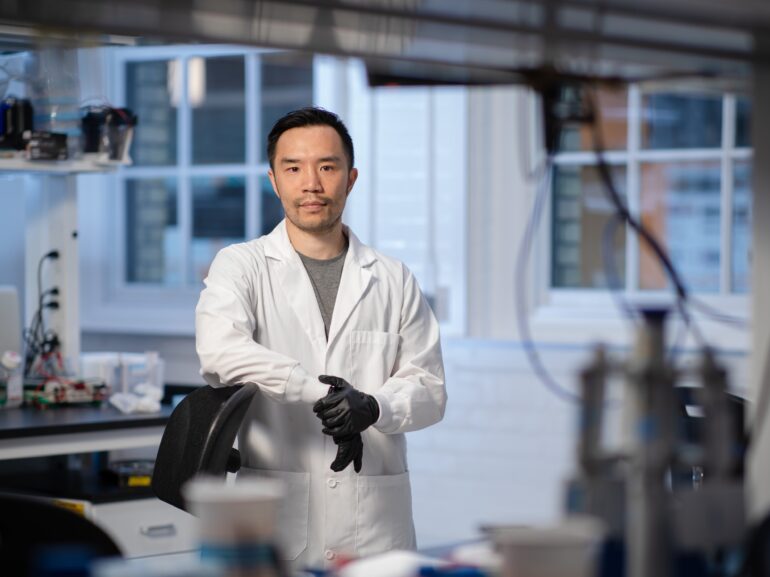Professor Leo Chou has been awarded $130,000 in funding from The Cancer Research Society (CRS) to propel forward an ambitious project aiming to boost the effectiveness of cancer vaccines. This award places him among 100 distinguished Canadian recipients this year, each selected to push boundaries in cancer research with innovative solutions.
The full list of recipients can be found here.
Professor Chou’s research, titled “Tuning the nanoscale structure of antigens to enhance cancer vaccine immunogenicity,” seeks to develop a novel vaccine platform to stimulate the body’s immune system to combat melanoma, a form of skin cancer. Unlike traditional cancer treatments that can come with significant side effects or limited effectiveness, Chou’s work focuses on creating a more precise and powerful approach by using DNA origami nanotechnology.
Cancer vaccines are a promising strategy in immunotherapy, as they prime the immune system to recognize and destroy cancer cells. However, current cancer vaccines often struggle to generate a strong immune response. To overcome this, Chou’s team is exploring how tiny, carefully engineered DNA structures—known as DNA origami—can better target cancer cells. These DNA-based nanoparticles are designed to carry melanoma-specific antigens, which are molecules that trigger immune reactions, to more effectively “teach” the immune system to recognize and fight melanoma cells.
“DNA origami provides the flexibility to design nanoparticles with very precise shapes, sizes, and nanoscale features,” Chou explains. “While traditional vaccines have primarily focused on their ingredients, we’re using DNA origami to explore how the structure of vaccines at the nanoscale can impact the immune response. By mimicking viruses, for example, we can gain insights into how vaccine structures might be optimized to trigger a stronger immune reaction, especially against cancer. This approach could pave the way for more effective cancer immunotherapies.”
This project will use DNA origami nanoparticles to arrange antigens in precise patterns, which may play a critical role in how effectively the immune system responds. Ultimately, they aim to advance this technology toward human applications, with the goal of developing safer, more effective cancer vaccines.
If successful, Professor Chou’s research could pave the way for personalized cancer vaccines and transform cancer treatment by harnessing the body’s natural defenses in a powerful new way.


